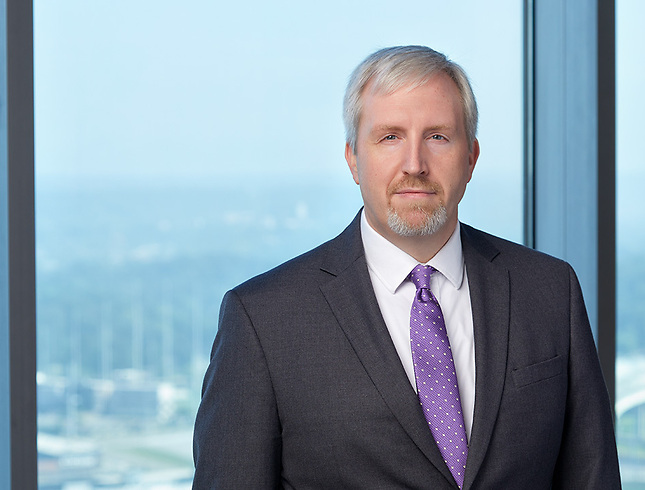- Partner
Ben Coulter is a Partner at Burr & Forman LLP practicing in the General Commercial Litigation Group.
His practice primarily involves the defense of banks, credit unions, brokers, and other financial institutions in securities ...
Eleventh Circuit Interprets Rule 10b-5(b)
On March 1, 2016, the Eleventh Circuit Court of Appeals affirmed the Southern District of Florida in Fried v. Stiefel Labs., Inc., No. 14-14790, 2016 WL 787986 (11th Cir. Mar. 1, 2016), holding that the District Court had properly refused to give a portion of a jury instruction requested by the Plaintiff/Appellant Richard Fried concerning Rule 10b-5(b). Fried is the former CFO of Stiefel Labs. After resigning in 1997, Fried held 30.7881 share of common stock in an Employee Stock Bonus Plan and 10 shares of stock outside of the plan. In August 2007, Fried learned that Stiefel Labs had announced that it had accepted a $500 million private equity investment and stressed it would remain a family-controlled business in doing so. Fried later met twice with Stiefel Labs CEO and Chairman of the Board Charles Stiefel (in September 2007 and October 2008), who told him that the investment would not affect the value of his common stock and that the company had a promising outlook but that the next few years might be challenging. Later, in November, Mr. Stiefel learned that a French pharmaceutical company was interested in acquiring Stiefel Labs and presented the idea to the Stiefel family on Thanksgiving. Stiefel had a brief meeting covered by a confidentiality agreement. At approximately the same time, Fried put the stock in his plan to Stiefel Labs at $16,469/share on January 6, 2009. On April 20, 2009, GlaxoSmithKline agreed to buy Stiefel Labs for roughly $3.6 billion, and shareholders received $69,705 per share. Fried brought suit against Steifel Labs, Steifel, and other officers of Stiefel Labs. In his amended complaint, Fried alleged, among other things, violations of federal securities laws. After motion practice was completed, only the securities claims went to the jury. The parties submitted proposed jury instructions for claims under Rule 10b-5(b), agreeing that the defendants had a duty under Rule 10b-5(b) to disclose facts necessary to make other statements not misleading. Fried, however, requested an additional sentence in the Rule 10b-5(b) instruction that the defendants had a duty to "disclose all material information." The District Court denied this request, and the jury returned a verdict for the defendants. On appeal, Fried argued that the jury instruction properly states that Stiefel Labs - as a corporate insider - had a duty to disclose all material information. The Eleventh Circuit Court of Appeals affirmed the decision of the District Court, holding that the instruction given by the District Court correctly stated the law in its instruction concerning Rule 10b-5(b) and correctly refused Fried's proposed addition to the instruction, explaining: (1) "Rule 10b-5(b) prohibits misrepresentations and omissions of material fact; it does not prohibit an insider's failure to disclose all material information before trading in its stock."; (2) Rule 10b-5(b) proscribes fraud "only in connection with an affirmative representation….[and] does not proscribe total silence"; and (3) Fried's instructions "did not adequately state the elements of a claim of insider training."
Posted in: Eleventh Circuit Court of Appeals
Tags: burr forman, Eleventh Circuit interprets Rule 10b-5(b), Fried v. Stiefel Labs, Richard Fried, Rule 10b-5(b), securities litigation, Securities Litigation & Arbitration, Southern District of Florida, Steifel Labs

